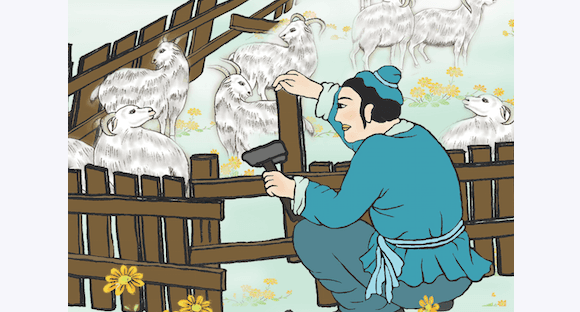During the Warring States Period (475–221 B.C.), there was a minister in the state of Chu named Zhuang Xin.
Zhuang worried when he saw the court officials and the king often indulging in luxuries and excessive pleasures.
One day, Zhuang said to the king of Chu: “Your Majesty, you are always surrounded by ministers who flatter you and try everything to make you happy. You have no time to take care of state affairs and Chu is facing great danger. If no change is made, our state will certainly perish.”
Hearing these words, the king was unhappy and scolded him: “How dare you! You would use such vicious words to curse my country and try to arouse the people’s anger!”
Realizing nothing was going to change, Zhuang asked the king for permission to leave the state for a time. The king allowed it and Zhuang went to the state of Zhao.
A few months later, an army from the Qin state invaded Chu and occupied a large tract of Chu territory. The king of Chu was forced into exile. It was not until then that the Chu king remembered Zhuang’s advice and felt regret for not listening to Zhuang. He sent his men to call Zhuang back.
Having a strong sense of commitment to the state of Chu, Zhuang immediately went back to his king. “It is too late, what can I do now?” asked the king.

Sandy Jean/Epoch Times




